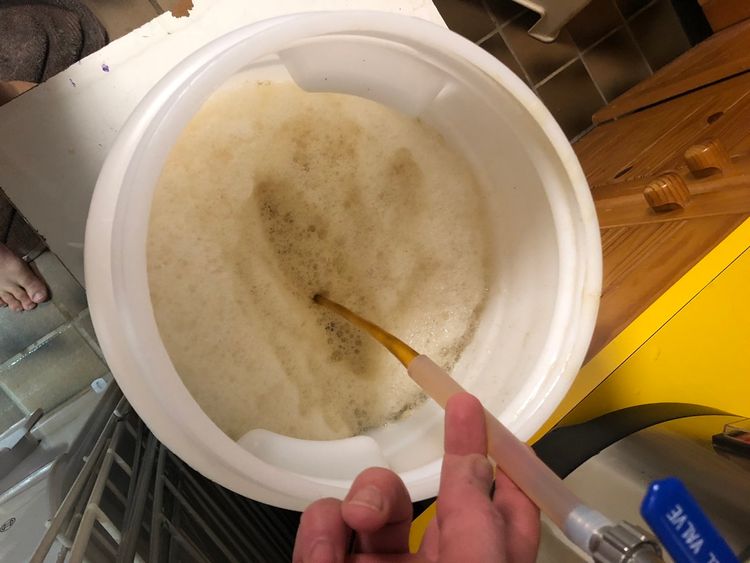Brew # 22 - Belgian Blonde Ale
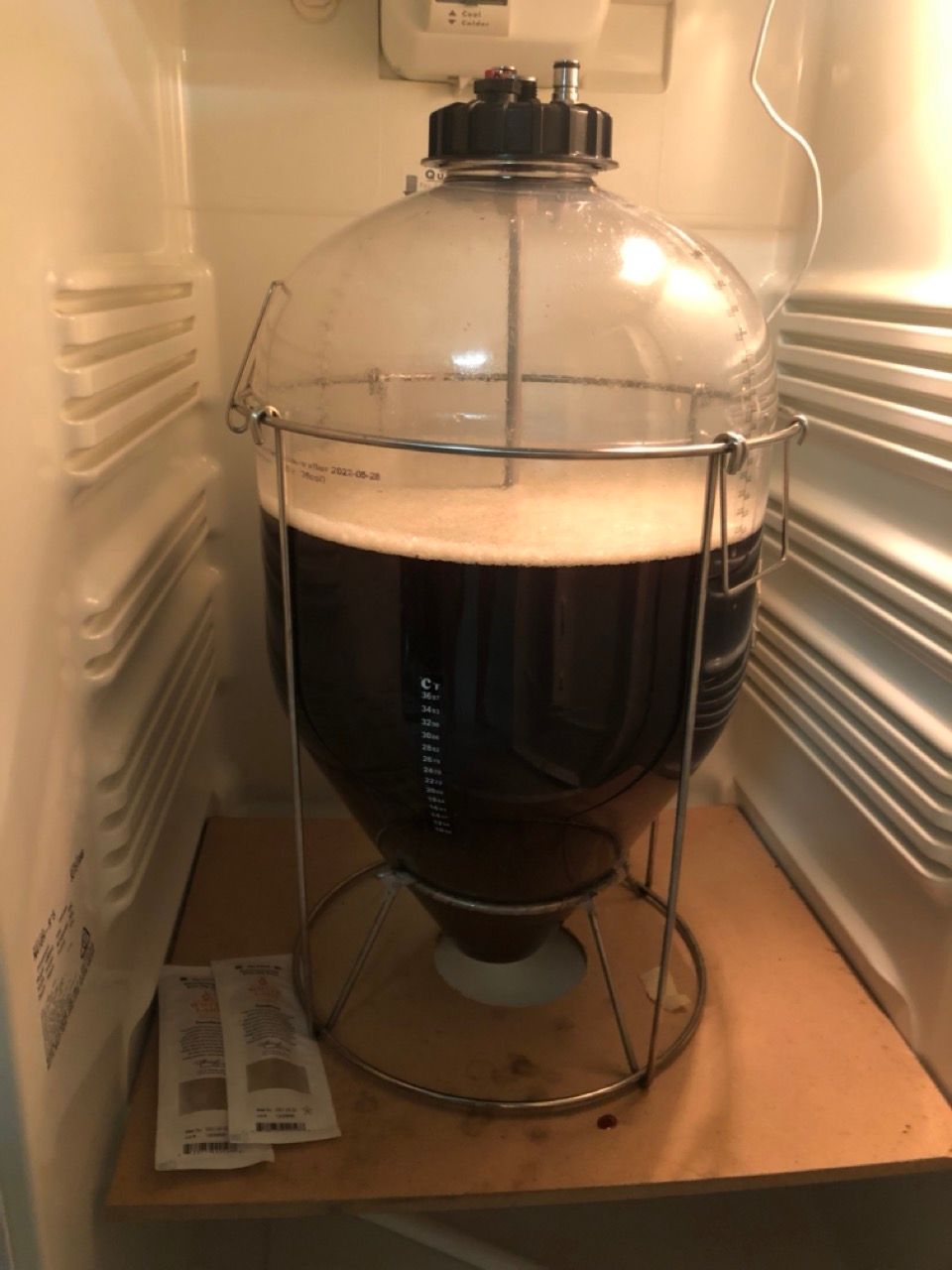
Ingredients
- 4.5kg Continental Pilsener Malt (Weyermann Premium Pilsener)
- 560g raw cane sugar
- 200g Wheat Malt (Barrett Burston)
- 200g Aromatic Malt (Weyermann Caraaroma)
- 100g Rice Hulls
- 35g Hallertau Perle hops @ 6.7% AA (60 min)
- 2x White Labs WLP644 Saccharomyces "bruxellensis" Trois Yeast
Mashing
- Single mash of all grains for 60 mins @ 66°C in 20.5L water (approx. 3.6 litres per kg of grain)
- After ~30 mins start heating 15L of sparge water to 78°C
- Raise temp to 76°C for mash out
- Lift grain basket from wort
- Set temperature on Grainfather to 103°C
- Sparge (slowly) to 29L pre-boil (larger than normal due to boil time of 90 mins)
The extra sparge water meant I had ~2-3 litres of wort in addition to the 22 litres that made it into the fermenter. Probably don't need quite as large a pre-boil volume next time.
Boil
Boil time is 90 mins. Add hops with 60 mins remaining. Add raw sugar and 1/2 Whirlfloc tablet with 15 minutes remaining.
Cool
Chilled wort as quickly as possible to ~20°C.
Target OG is 1.065 - the brew came in at 1.064 according to the refractometer. This was subsequently confirmed with the RAPT Pill.
Pitch
I bought 2x packs of liquid yeast so no starter is required this time around.
Aerated wort for 15 minutes after pitching with sanitised air pump and stone.
Added hydrometer/thermometer to monitor progress.
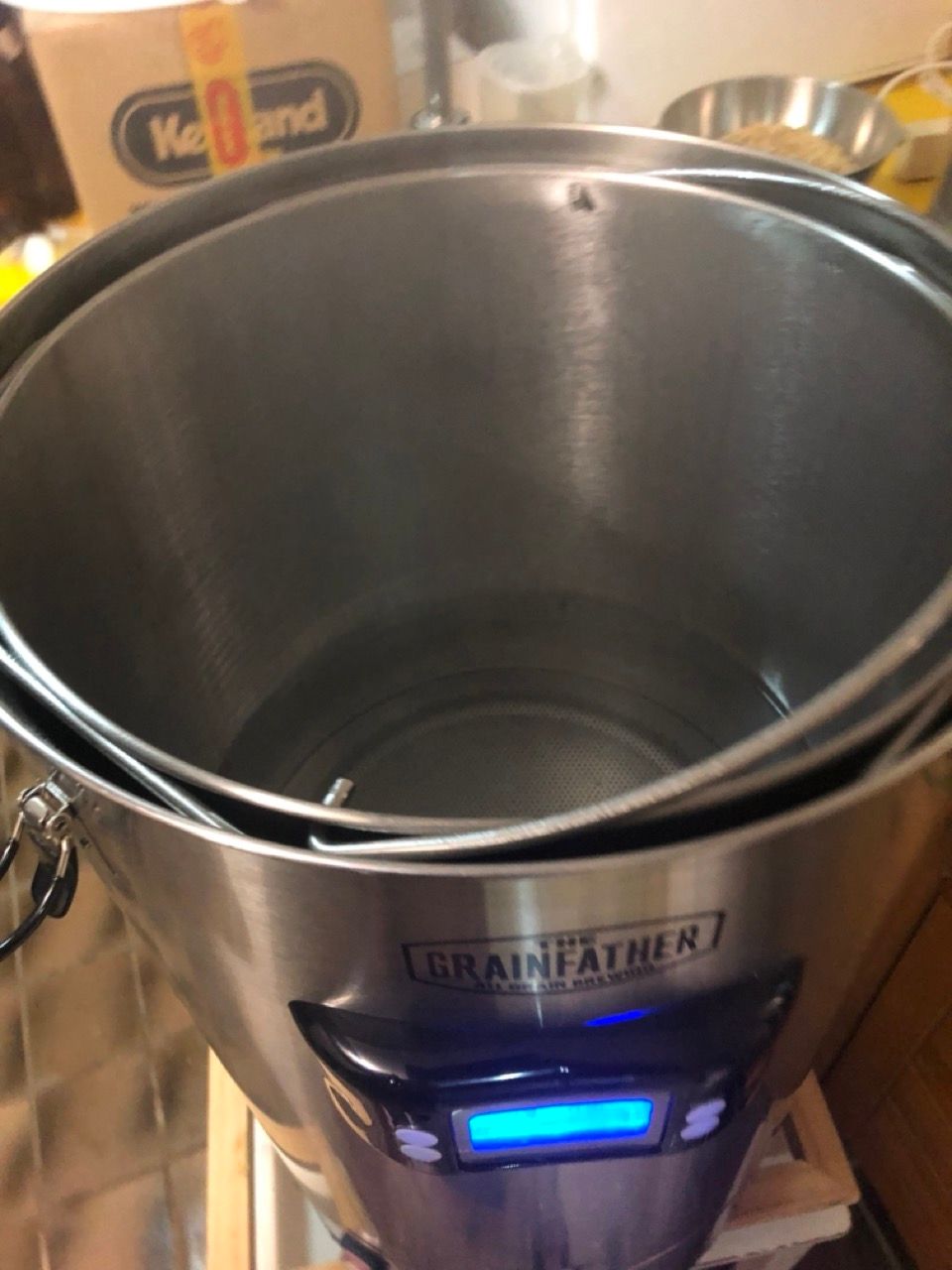
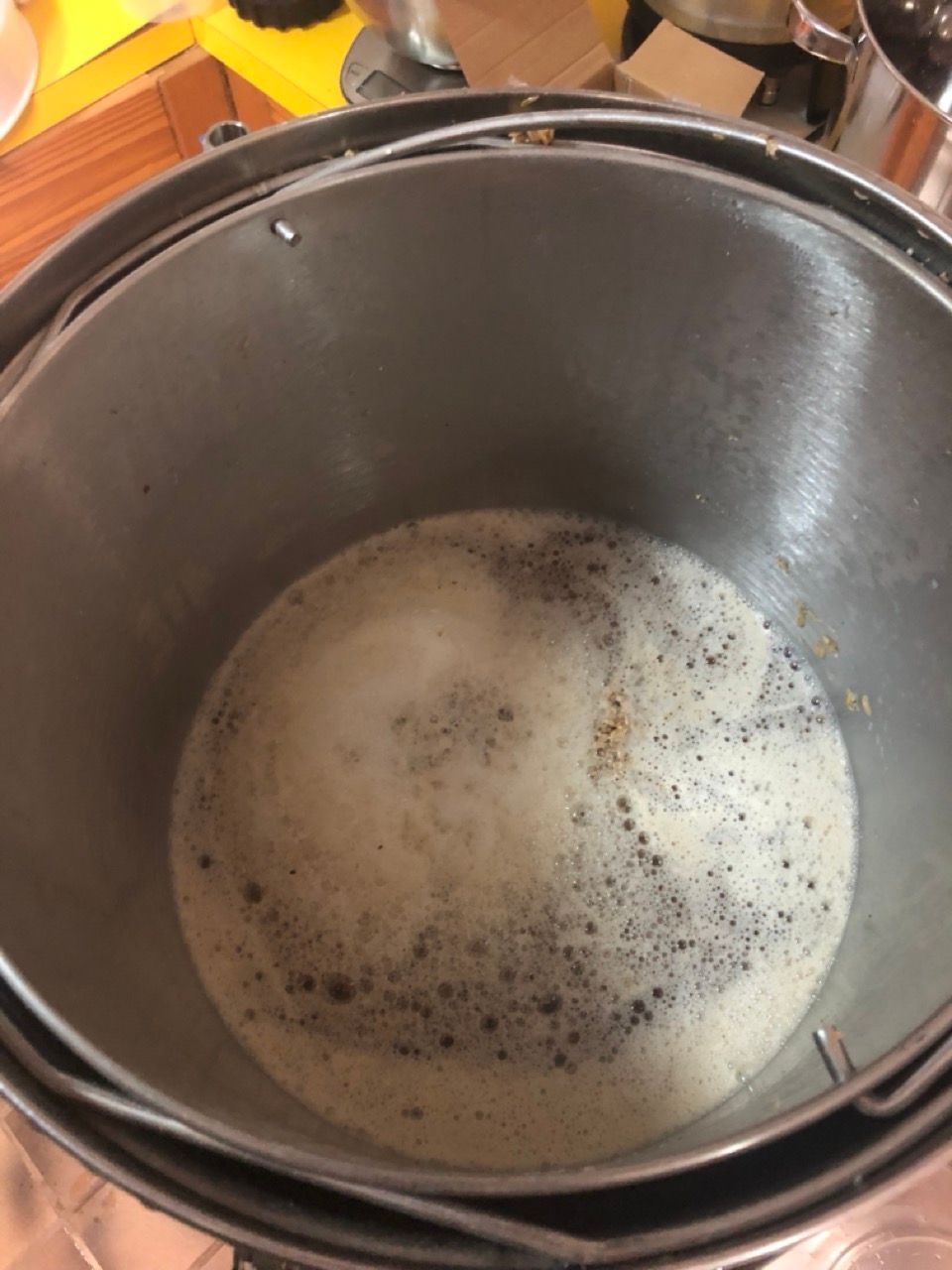
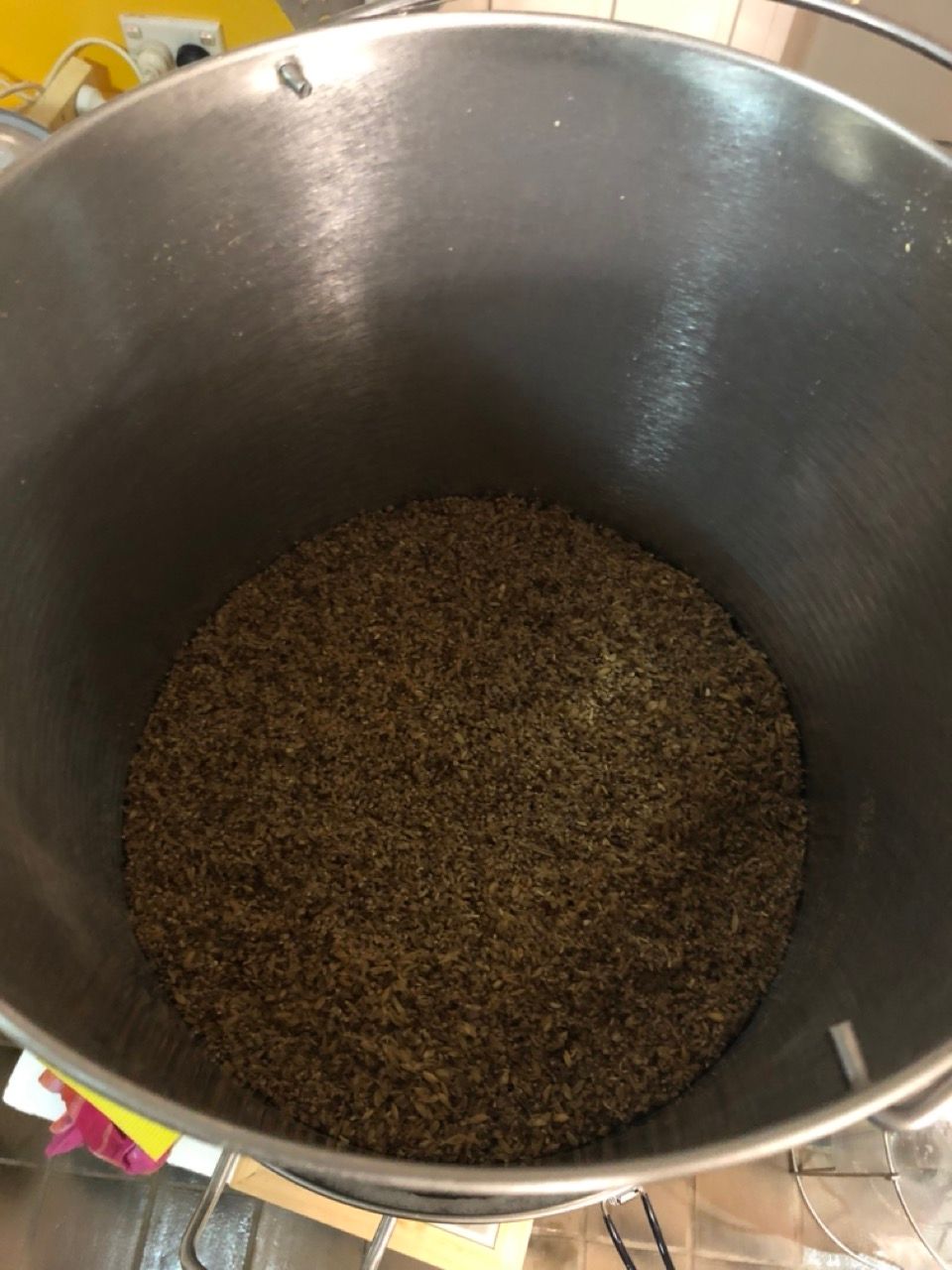
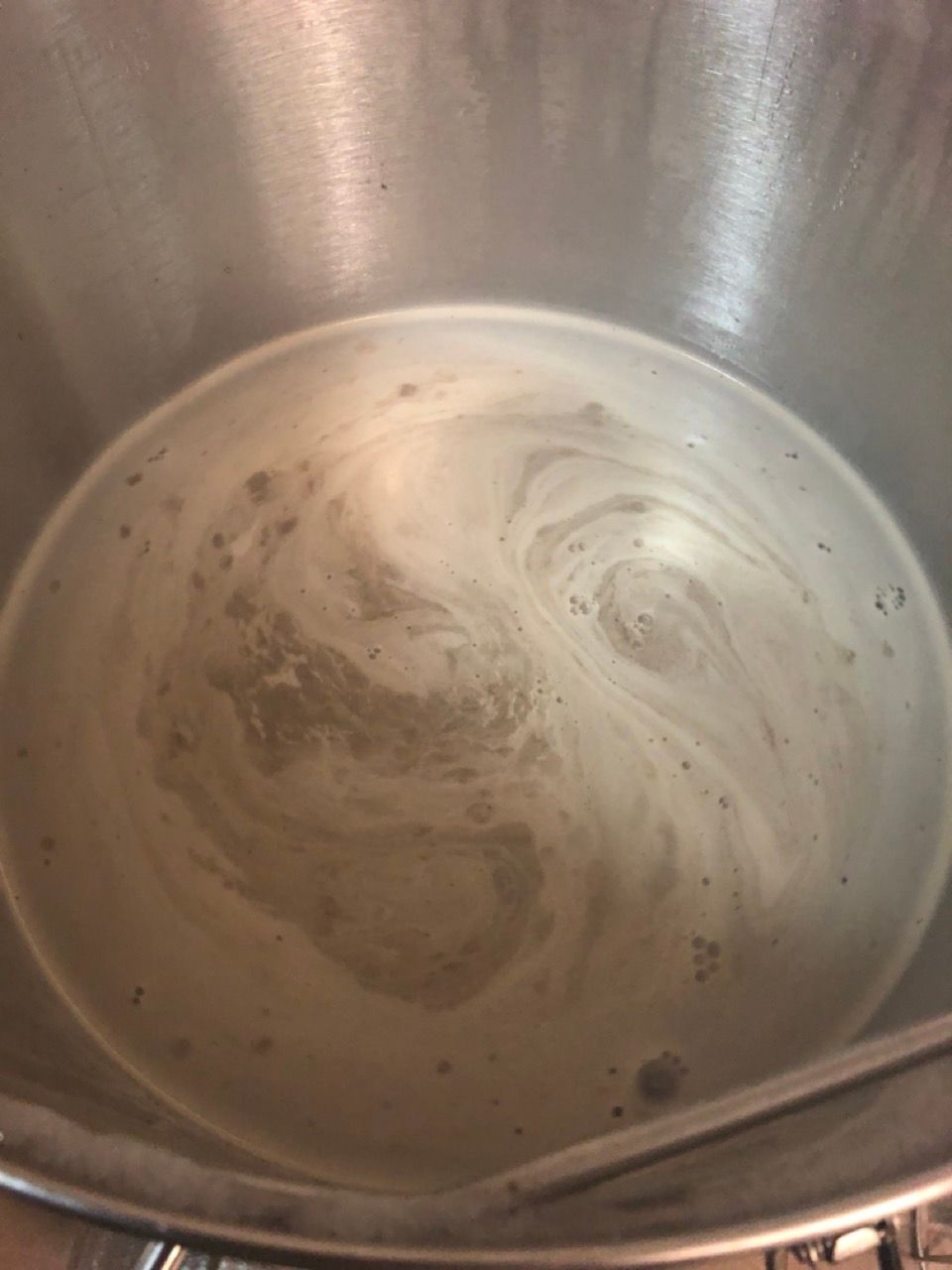
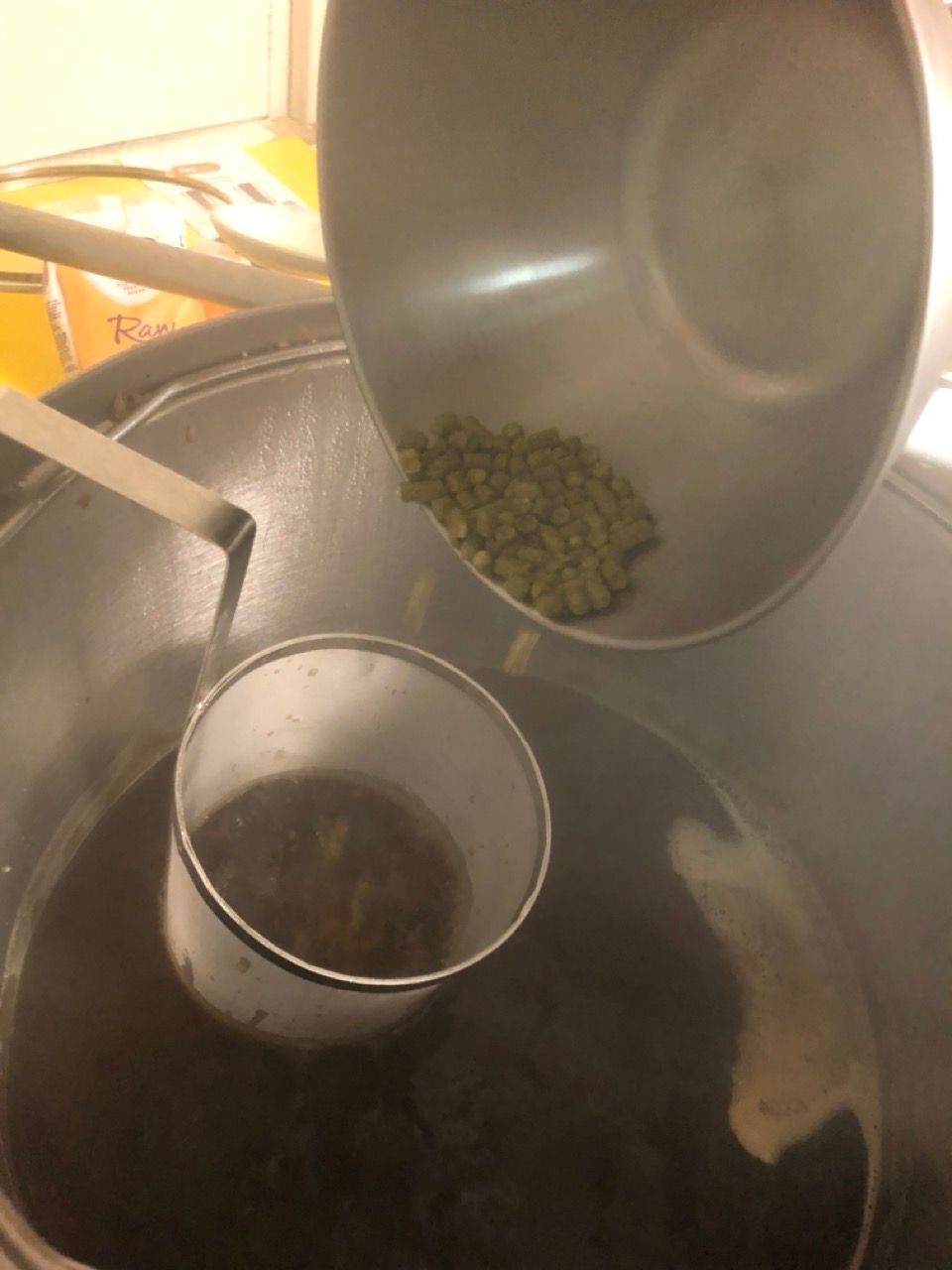
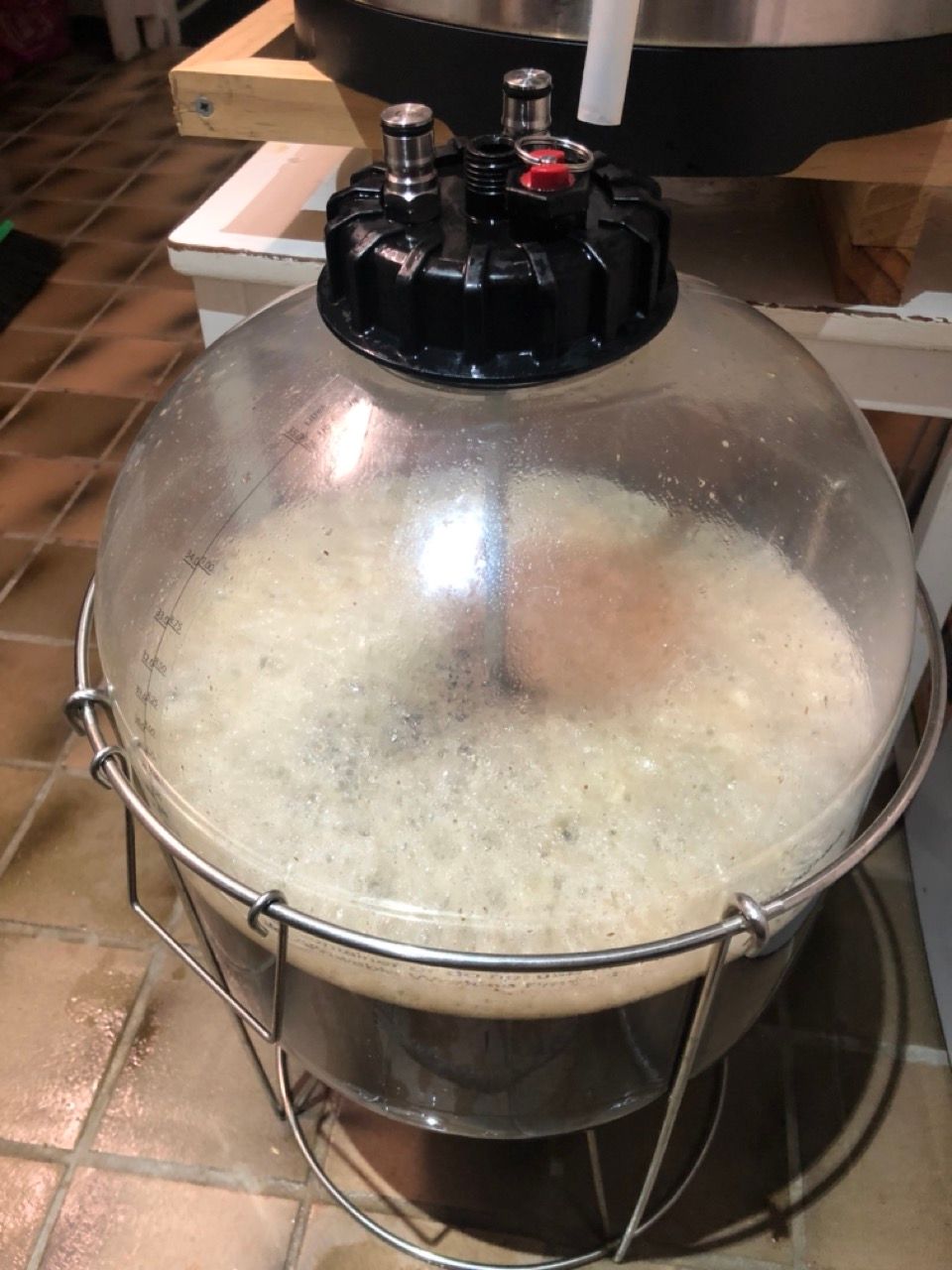
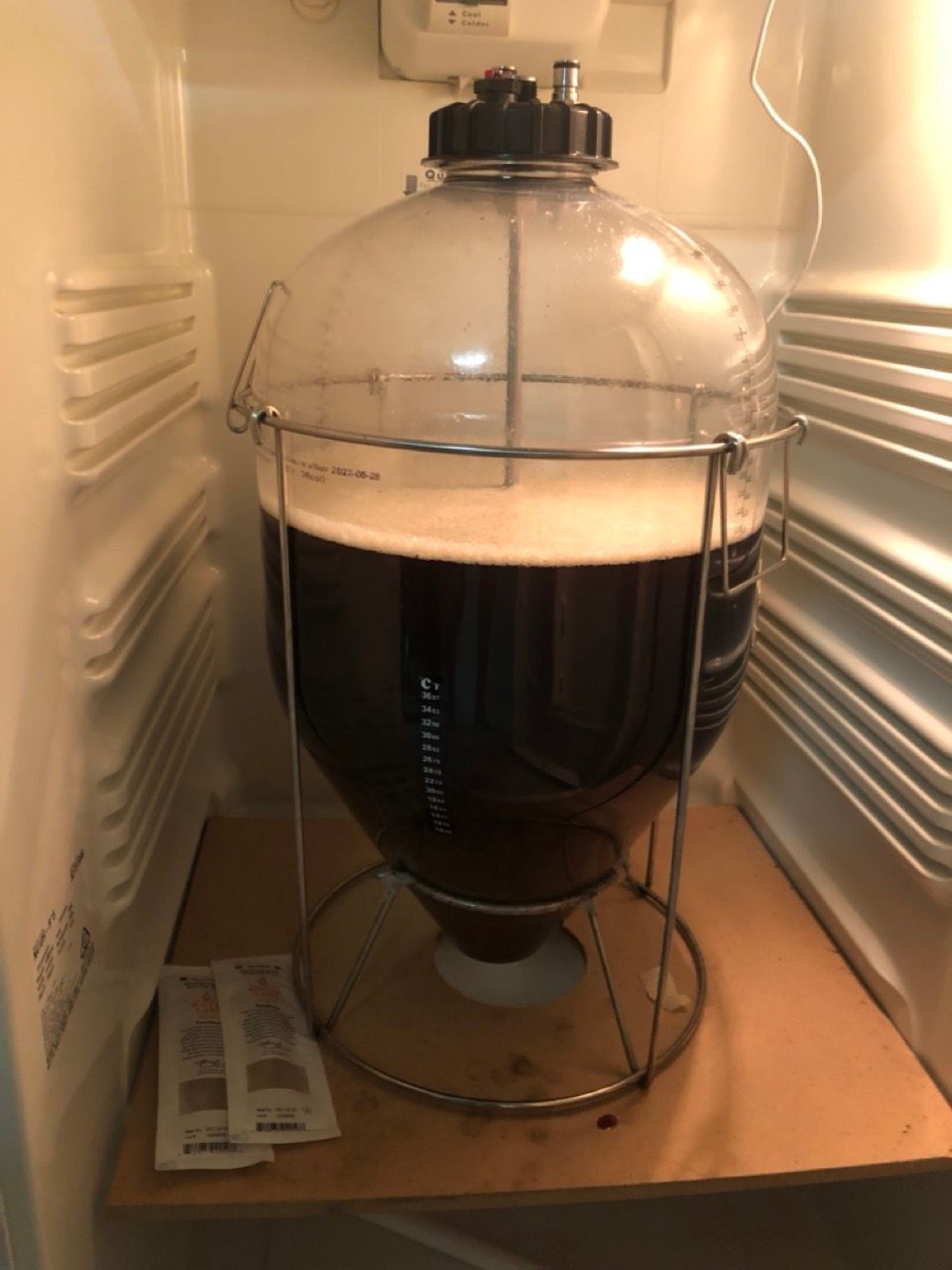
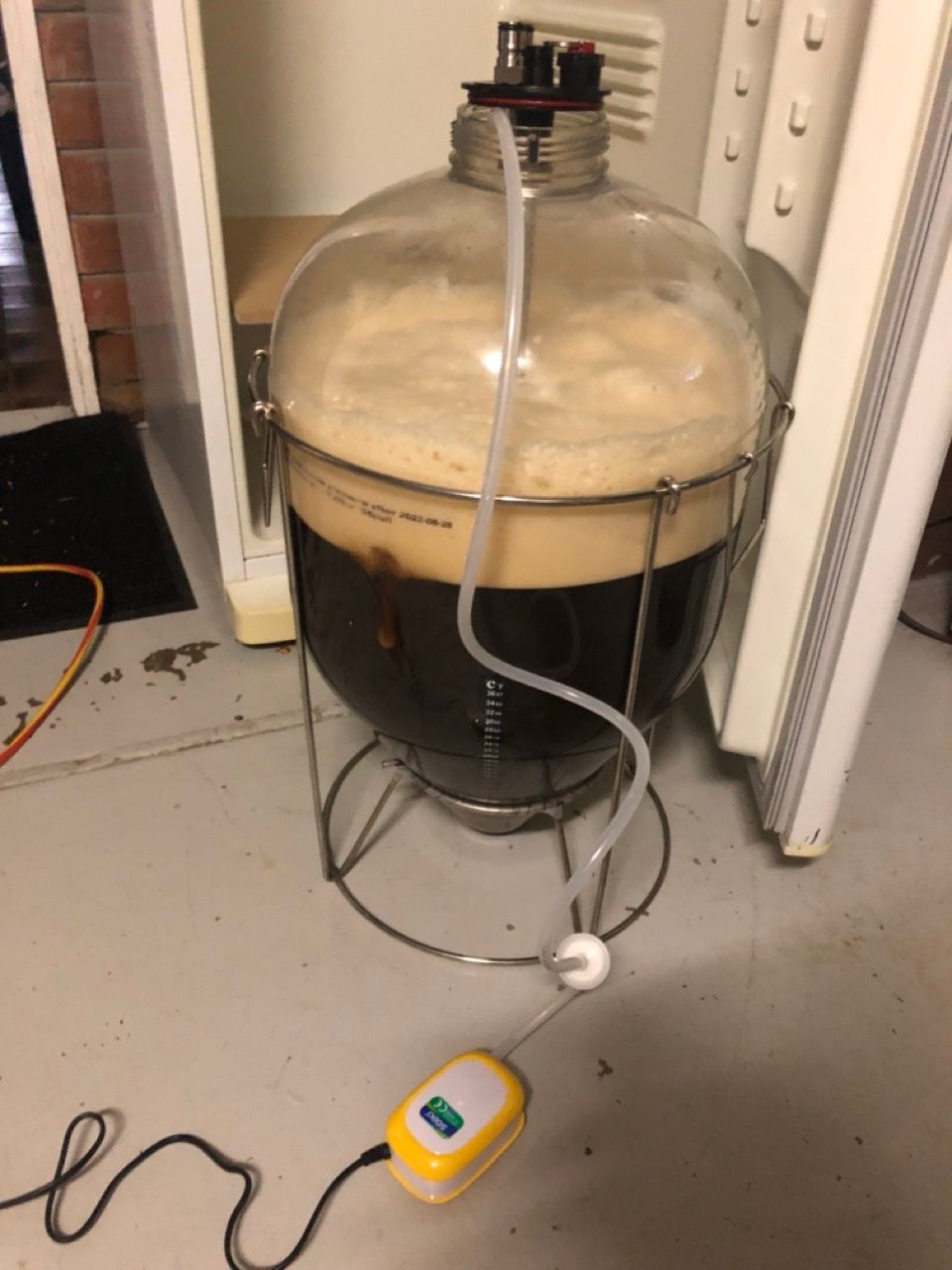
Fermentation
After pitching the yeast, slowly raise the temperature to ~23°C (this yeast has an optimum fermentation temperature between 21.1°C - 29.4°C).
I started this off at 0.3°C every 3 hours before realizing that would mean the alarm would start beeping at 5am in a couple of days. Changed to 0.2°C every 2 hours to give me a [more manageable] 24-hour cycle.
Fermentation started to slow after a week, but I hadn't yet hit my target of 1.012, so I started to increase the temp in 0.3°C bumps around day 9-10.
Achieved 1.012 after a couple of days, but it looked like the yeast hadn't completely finished, so I set the temp controller to continue to increase temp over 24 hours. This brought the final temp to ~25°C. Gravity dropped to 1.011 and appeared to hold signalling the end of fermentation.
Kegging
Once fermentation was complete, I reduced the temperature to 7°C to knock the yeast out of suspension and prepare for conditioning.
After ~1 week, I transferred into a sanitised, pre-chilled, pre-CO2'd keg for conditioning at 7°C for a further 2-3 weeks (as long as I can last).
Only thing remaining is to wait, carbonate, and drink.
Progress
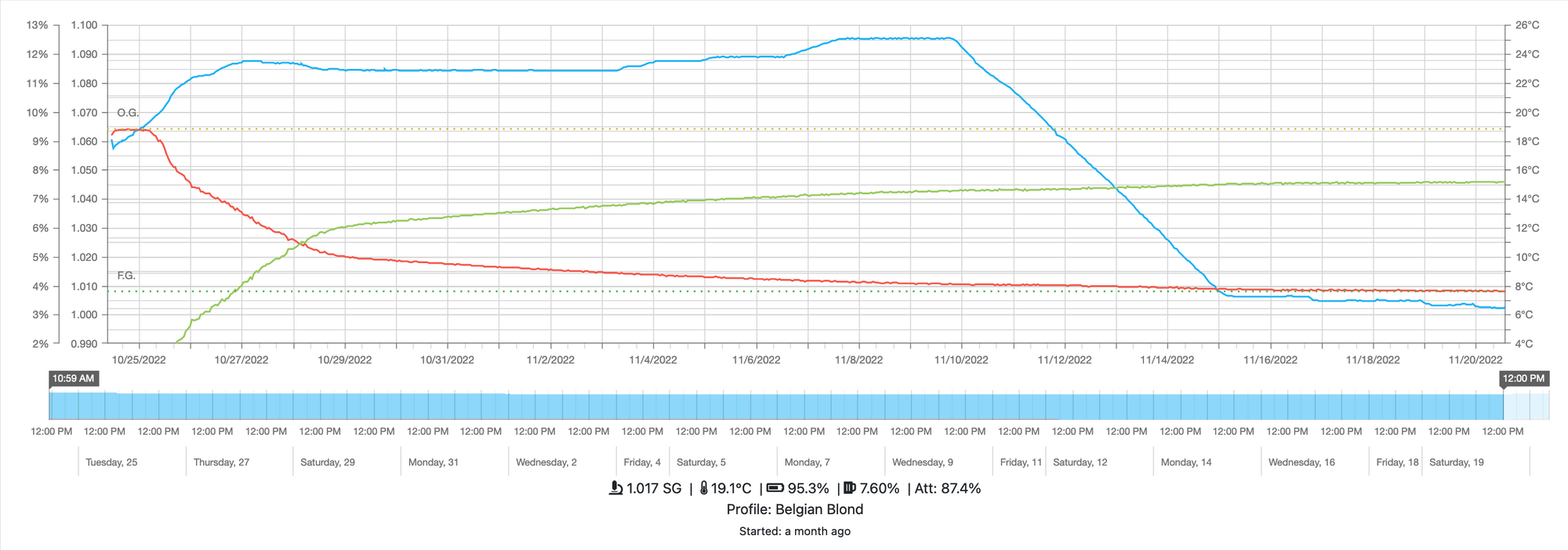
Improvements for next time
- Reduce pre-boil volume.
- Fix the Grainfather so it doesn't leak from the recirculation arm.
